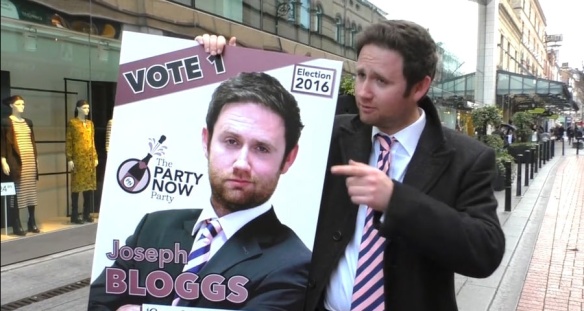Last week a group of 29 academics, which includes climate scientists, came together to call on our political parties to back the setting up of a Citizens’ Convention for a Post-Carbon Ireland. They have also asked members of the public to give their support to the call by signing an online petition available on the website http://www.postcarbonireland.org

Climate scientist, Professor John Sweeney of NUI Maynooth is one of the 29 academics in Ireland calling for a ‘Citizens Convention for a Post-Carbon Ireland’
Post-Carbon Ireland is an initiative of this group of leading Irish academics to raise the critical issue of climate action during the 2016 general election campaign. In the view of the academics their proposal for a Citizens’ Convention for a Post-Carbon Ireland would involve a sustained, citizen-led, national discourse on the challenges that climate change poses to our society, and how we can and will respond.
They remind us that since pre-industrial times, our world has warmed by a global average of almost 1°C, due primarily to greenhouse gas pollution from human activities. This has already triggered serious planetary-scale climate disruption, and is having devastating humanitarian impacts on vulnerable communities in diverse geographical regions. The scientists give us hope in that they say that we are “not powerless”. They continue: “We can still act: both to limit the speed and ultimate severity of global climate impacts, and to brace our own society for the potentially drastic shocks ahead due to the climate disruptions we have already initiated. This will require urgent and radical societal transformation. That can only happen with the willing engagement and support of the people. We need a genuine, sustained process that allows every single citizen and community in Ireland to fully consider the range and nature of the changes we face, and to advance policies and actions that are commensurate with them. Only in this way can we hope to create the unity and solidarity that is essential to create a strong, resilient, and genuinely sustainable society. We need a Citizens’ Convention for a Post-Carbon Ireland.”
HOW WILL IT BE DELIVERED
The group has already written to many political parties asking for their positions on their proposal in order to maximise the opportunity for effective climate action regardless of which parties form the next government. Updates will be published on the Post-Carbon Ireland website as politicians respond.
The academics are appealing to sign the online petition on http://www.postcarbonireland.org in support of the call for the Citizens Convention. Next week they will deliver the full list of signatories from the petition. The Group’s website has a video of the recent launch of the initiative and also an open letter addressed to all parties and candidates in General Election 2016. The letter ends with a quotation from a blog ‘The Climate Psychologist’ which includes a reference to the Climate Agreement in Paris in December last.
“By comparison with the Climate Change threat, every other national issue now pales into insignificance: post Paris, doing ‘our best’ is no longer answer enough — it is finally time to do what is necessary”
March events can be found here




